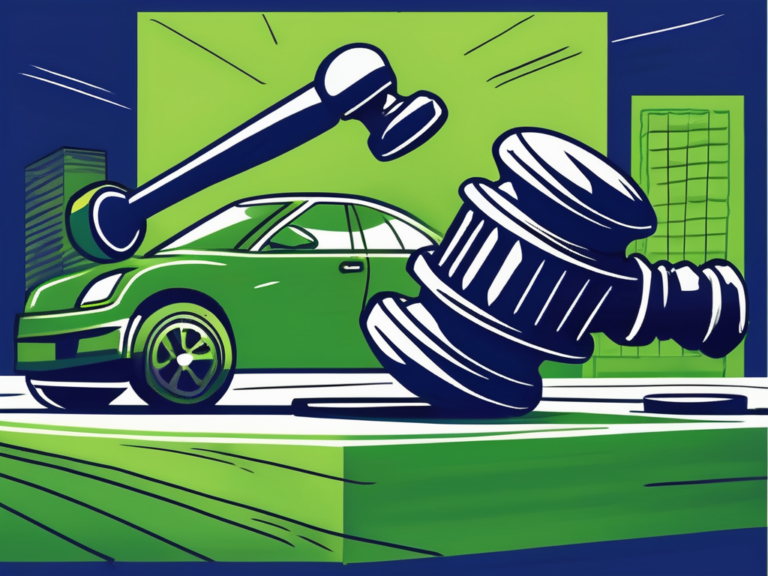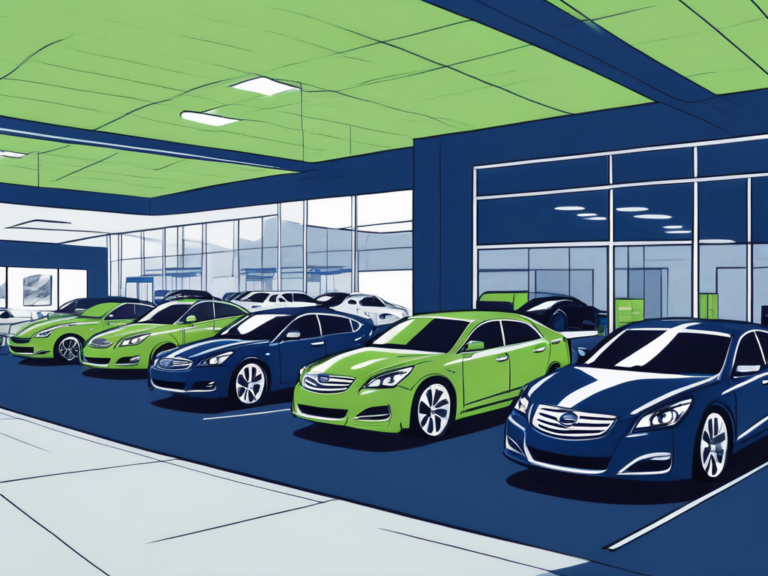Talk to Sales: (401) 200-6026

Automotive Customer Relationship Management (CRM) systems have emerged as powerful tools for managing customer interactions, improving sales processes, and boosting overall business efficiency. In today’s highly competitive automotive industry, automating various aspects of CRM has become a necessity for staying ahead of the curve. While the level of automation can vary depending on the needs and capabilities of individual businesses, understanding the basics and exploring the potential benefits is crucial.
Understanding the Basics of Automotive CRM
Automotive CRM, also known as Auto CRM, is a specialized software solution designed to streamline customer-centric operations within automotive businesses. It enables dealerships, service centers, and automotive companies to manage and optimize interactions across the entire customer journey, including sales, service, and marketing processes. By centralizing customer data, streamlining communication, and automating routine tasks, automotive CRM empowers businesses to enhance customer experience, increase operational efficiency, and drive revenue growth.
Defining Automotive CRM
At its core, automotive CRM is a comprehensive customer relationship management system with features and functionalities specifically tailored to the automotive industry. It integrates multiple departments and touchpoints, providing a unified platform to manage and track customer interactions, sales activities, inventory, and more. From capturing leads to nurturing relationships and securing repeat business, automotive CRM supports the entire customer lifecycle.
The Role of CRM in the Automotive Industry
In the increasingly competitive automotive industry, building and maintaining strong customer relationships is paramount. Automotive CRM plays a crucial role in guiding businesses towards success by enabling them to understand and meet customer needs more effectively. By leveraging customer insights, capturing valuable data, and automating key processes, automotive CRM helps businesses optimize their sales and marketing efforts, improve customer satisfaction, and drive revenue growth.
One of the key benefits of automotive CRM is its ability to provide businesses with a holistic view of their customers. By consolidating customer data from various sources, such as sales transactions, service records, and marketing interactions, automotive CRM allows businesses to gain a comprehensive understanding of each customer’s preferences, behaviors, and needs. This valuable insight enables businesses to tailor their offerings and communication strategies to better serve their customers, ultimately leading to increased customer satisfaction and loyalty.
Furthermore, automotive CRM helps businesses streamline their sales and marketing processes by automating repetitive tasks and workflows. For example, the system can automatically send personalized follow-up emails to customers after a test drive or service appointment, ensuring that no opportunity for engagement is missed. By reducing manual effort and improving efficiency, automotive CRM allows sales and marketing teams to focus on building relationships and closing deals, rather than getting bogged down by administrative tasks.
The Automation Potential of Automotive CRM
One of the most significant advantages of automotive CRM is its ability to automate various tasks and processes, freeing up time for sales teams to focus on building relationships and closing deals. Let’s explore some key features that enable automation and the resulting impact on efficiency.
Key Features that Enable Automation
Automotive CRM offers a range of features that can be automated to streamline workflows and boost productivity. These include:
- Lead Management: Automotive CRM automates lead capture, distribution, and assignment, ensuring efficient follow-up and reducing lead leakage.
- Inventory Management: By integrating with inventory systems, automotive CRM facilitates real-time updates, automated stock maintenance, and visibility into available vehicles.
- Sales Process Automation: Automotive CRM enables automation of sales processes, such as generating quotes, calculating pricing, and managing contract negotiations.
- Service Reminders and Notifications: By automating service reminders and notifications, CRM ensures timely communication with customers, increasing service retention rates.
Automation and Efficiency in Automotive Sales
Automotive sales teams often grapple with time-consuming administrative tasks that detract from customer-facing activities. By automating routine processes, automotive CRM helps sales professionals streamline their workflows, freeing up time for building relationships and closing deals. From automated lead routing and follow-up reminders to sales document generation and contract management, CRM automation empowers sales teams to work more efficiently and effectively.
Benefits of Automation in Automotive CRM
The advantages of automation in automotive CRM are wide-ranging and impactful. Let’s explore some key benefits that businesses can expect to achieve through automation.
Enhancing Customer Experience through Automation
Automating various customer touchpoints and processes within automotive CRM leads to a more seamless and personalized customer journey. From automated appointment scheduling and personalized marketing messages to intelligent lead nurturing and targeted cross-selling, CRM automation helps businesses deliver enhanced customer experiences that foster loyalty and advocacy.
Streamlining Operations with Automated Processes
Automation in automotive CRM enables businesses to streamline their operations, minimize manual errors, and reduce inefficiencies. By eliminating time-consuming tasks and ensuring accurate data entry, businesses can significantly enhance their operational efficiency. From automated sales reporting and performance tracking to streamlined service request handling and inventory management, automotive CRM automation streamlines critical business processes.
Sell cars on the lot faster with AutoRaptor
Know if we’re the right fit within 10 minutes
Implementing Automation in Your Automotive CRM
While the benefits of CRM automation are clear, implementing automation within your automotive CRM requires careful planning and consideration. Here are some key steps to help you get started.
Steps to Automate Your CRM
To successfully implement automation within your automotive CRM, consider the following steps:
- Identify Automation Opportunities: Assess your existing processes and workflows to identify areas that can benefit from automation.
- Select the Right Automation Tools: Choose an automotive CRM system that offers robust automation features and integrates seamlessly with your existing tools and systems.
- Define Automation Rules: Determine the specific rules and triggers that will initiate automation, such as lead qualification criteria or service reminder timelines.
- Map Automation Workflows: Develop clear workflows that outline the automated processes, including communication templates, task assignments, and escalation paths.
- Train and Engage Your Team: Provide comprehensive training to your team members to ensure they understand the benefits of automation and can effectively utilize CRM automation features.
Overcoming Challenges in CRM Automation
While implementing CRM automation brings numerous benefits, it’s essential to be aware of potential challenges and plan accordingly. Some common challenges include resistance to change, data integration complexities, and ensuring data accuracy. By addressing these challenges proactively and investing in proper training and support, businesses can overcome obstacles and maximize the potential of CRM automation.
Measuring the Success of CRM Automation
While CRM automation can drastically improve business processes, it’s crucial to measure its success to understand the impact on your return on investment (ROI) and overall business performance.
Key Performance Indicators for CRM Automation
When assessing the success of CRM automation, consider monitoring the following key performance indicators (KPIs):
- Lead Conversion Rate: Measure the percentage of leads that convert into sales, using automation to nurture leads effectively.
- Customer Satisfaction Scores: Gauge customer satisfaction levels by monitoring feedback and ratings to ensure automation delivers an enhanced customer experience.
- Sales Cycle Length: Track the time it takes for a lead to progress through the sales cycle, identifying areas where automation can expedite the sales process.
- Operational Efficiency: Evaluate the overall efficiency of your processes by measuring tasks completed, response times, and error rates before and after implementing automation.
Evaluating the Impact of Automation on ROI
To determine the impact of automation on ROI, analyze key financial metrics such as increased sales revenue, reduced costs, and improved conversion rates. By comparing these figures to your CRM automation investment, you can assess the success and return on investment of your automation efforts.
Automating various aspects of automotive CRM brings immense benefits to businesses in the automotive industry. By understanding the basics of automotive CRM, exploring the automation potential, and implementing the right automation strategies, businesses can optimize customer interactions, streamline operations, and achieve greater efficiency and profitability. Investing in automotive CRM automation is not only a smart business move but also a necessary step towards staying competitive in today’s rapidly evolving automotive landscape.
Discover the Power of Automation with AutoRaptor
Ready to transform your dealership’s efficiency and boost your sales? It’s time to experience AutoRaptor in action. Book a quick demo and see firsthand how our CRM can be tailored to your unique needs, ensuring your sales team stays engaged and productive. Join the ranks of dealerships saving an average of $10.8k per year by making the switch. Don’t miss out on the opportunity to streamline your operations and enhance your customer relationships. Schedule your demo today and find out if AutoRaptor is the right fit for your business within just 10 minutes.
Subscribe to our Newsletter
Resources to help your dealership convert more leads into sales, retain more customers, and market inventory smarter, straight to your inbox every Sunday.




